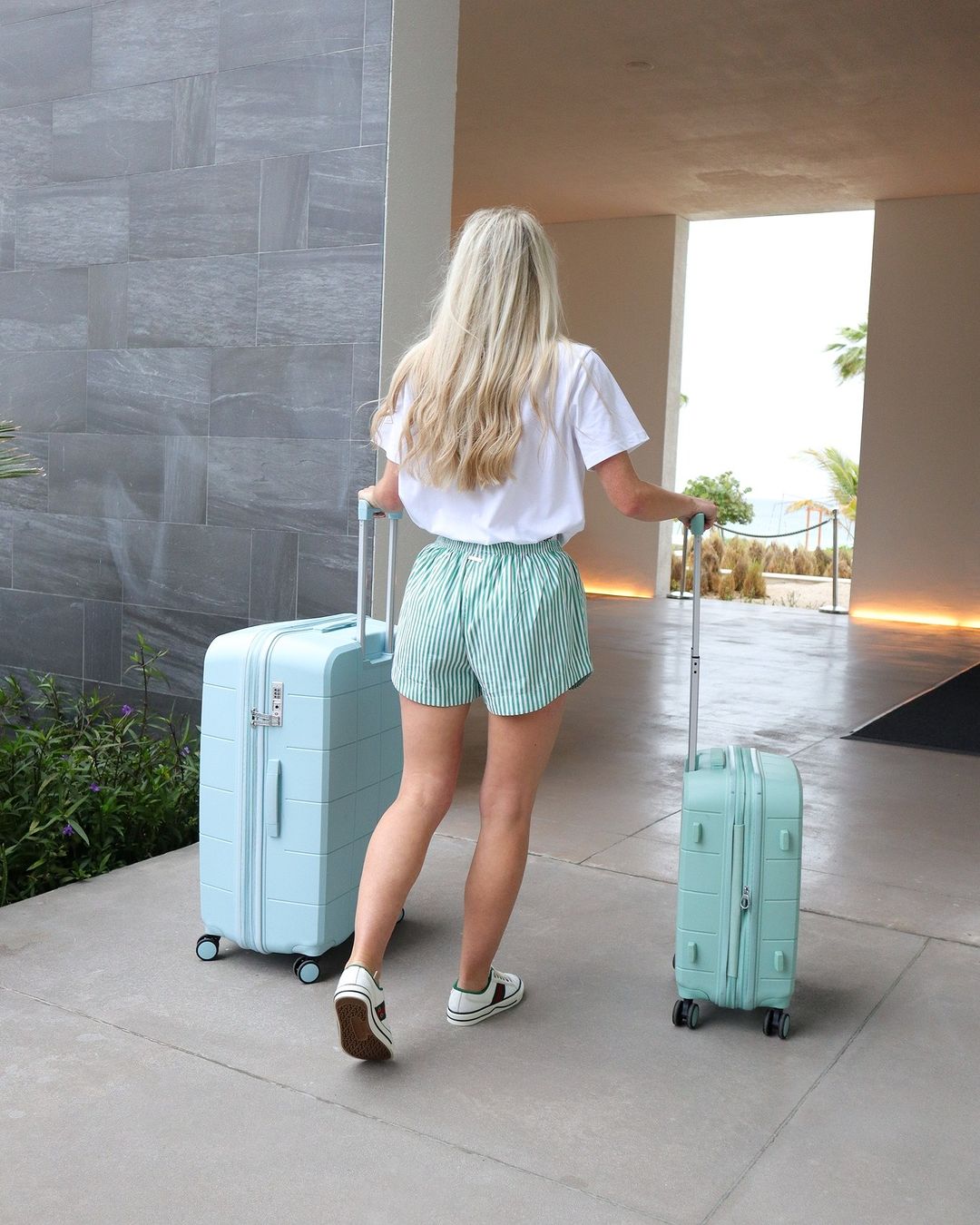
Luggage Materials Compared: Hard-Shell vs. Soft-Shell vs. Hybrid
, by Carolina UC, 4 min reading time

, by Carolina UC, 4 min reading time
Choosing the right luggage can make or break your travel experience. With so many options available, understanding the differences between hard-shell, soft-shell, and hybrid luggage materials is essential. Each type has its own advantages and drawbacks, depending on your travel needs. Let’s break it down and compare them based on key factors.
Choosing the right luggage can make or break your travel experience. With so many options available, understanding the differences between hard-shell, soft-shell, and hybrid luggage materials is essential. Each type has its own advantages and drawbacks, depending on your travel needs. Let’s break it down and compare them based on key factors.

Hard-shell luggage, typically made from polycarbonate, ABS, or aluminium, offers superior protection against impacts. It’s great for protecting fragile items but can crack under extreme pressure.
Soft-shell luggage, made from fabrics like nylon or polyester, is more resistant to tears and abrasions. It’s flexible but doesn’t offer as much protection against crushing.
Hybrid luggage combines both materials, using a semi-rigid structure with fabric reinforcements. It strikes a balance between toughness and flexibility.
Hard-shell luggage tends to be heavier due to its rigid structure, although newer polycarbonate options are relatively lightweight.
Soft-shell luggage is usually lighter, making it a great choice for those looking to maximise their baggage allowance.
Hybrid luggage sits in the middle, offering a mix of durability and manageable weight.

Soft-shell luggage is the most flexible, allowing travellers to squeeze it into tight spaces and expand it when needed.
Hard-shell luggage lacks flexibility, maintaining its shape regardless of how much you pack.
Hybrid luggage offers some give while still maintaining structural integrity.
Soft-shell luggage often has external pockets for extra storage, which can be a lifesaver for quick-access items.
Hard-shell luggage typically doesn’t have exterior pockets, limiting easy access to essentials.
Hybrid luggage sometimes features a combination of rigid and flexible sections, offering moderate external storage.

Hard-shell luggage generally comes with built-in TSA-approved locks and is more difficult to cut open, making it the most secure option.
Soft-shell luggage, while often featuring zippers with lockable compartments, can be more vulnerable to theft or tampering.
Hybrid luggage incorporates security features from both types, offering a decent level of protection.
Hard-shell luggage is highly resistant to rain and spills, keeping contents dry even in bad weather.
Soft-shell luggage, unless treated with a water-resistant coating, is more susceptible to moisture.
Hybrid luggage offers moderate resistance depending on the materials used in its construction.

Hard-shell luggage looks sleek and modern, often available in glossy or matte finishes. It’s popular among business travellers and style-conscious individuals.
Soft-shell luggage has a more traditional, casual look and is available in a wider variety of colours and patterns.
Hybrid luggage blends both styles, offering a mix of rigid and soft elements that appeal to a wide range of travellers.
Both hard-shell and soft-shell luggage come with spinner wheels or inline skate wheels, making them easy to move around.
Hard-shell luggage is more stable due to its rigid structure, whereas soft-shell luggage can sometimes feel unbalanced if overpacked.
Hybrid luggage provides a balanced approach, often designed with reinforced wheels for smoother movement.
Hard-shell luggage tends to be more expensive, especially high-end brands using premium materials like aluminium or carbon fibre.
Soft-shell luggage is generally more affordable, making it a budget-friendly option for many travellers.
Hybrid luggage falls somewhere in between, offering good value for those who want durability without the high cost of premium hard-shell options.

Hard-shell luggage – Ideal for long-haul flights, business travel, and protecting fragile items. Great for frequent travellers needing high durability.
Soft-shell luggage – Best for road trips, short getaways, and travellers who need flexible packing space. Ideal for carry-ons due to easy access pockets.
Hybrid luggage – A solid choice for those who want a mix of both worlds. Great for versatile travel needs without compromising too much on security or flexibility.
Ultimately, the best luggage material depends on your travel habits. If you prioritise protection and security, hard-shell luggage is the way to go. If flexibility and lightweight design matter more, soft-shell luggage is the best bet. And if you want a bit of both, hybrid luggage is an excellent middle ground.
Consider your travel style, packing preferences, and destination before making a choice. Investing in the right luggage can make your journeys smoother and more enjoyable!

ON YOUR ORDER WHEN YOU SIGN UP FOR EMAIL